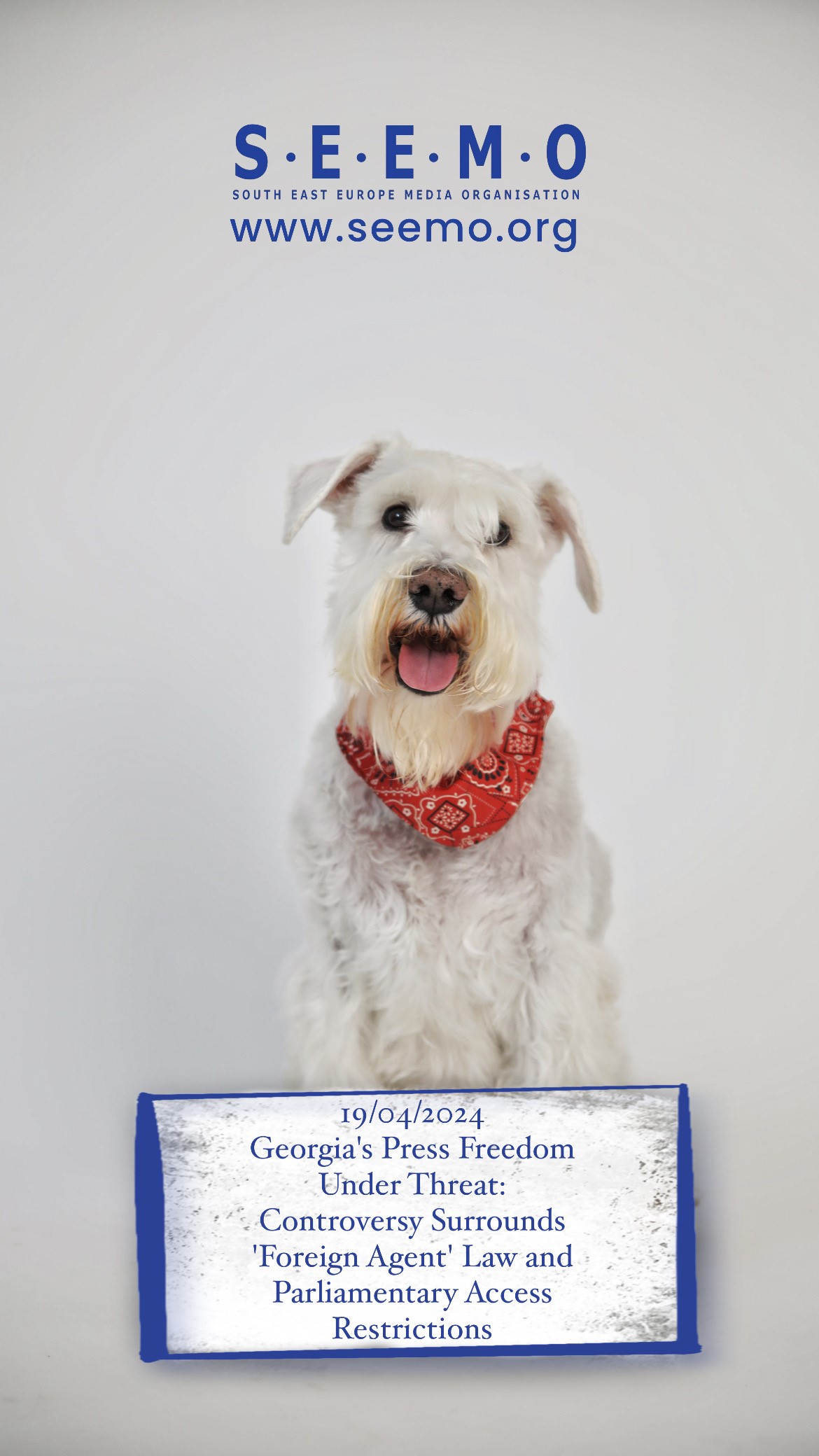The Georgian Parliament’s decided on 14 April 2024 to bar journalists from digital media outlets from accessing the Parliament building. This move, enacted under the guise of “Enhancing Safety Measures,” effectively prevented a group of journalists from reporting on critical debates, including the discussion of the reintroduced bill on “Transparency of Foreign Influence” by the Legal Issues Committee. Journalists from broadcast media were exempt.
This restrictive measure follows a previous incident on 8 April 2024, where access to Parliament was limited for reporters from independent and critical media organizations during discussions on the official registration of the aforementioned draft law. The Georgian Charter of Journalistic Ethics (https://www.qartia.ge/en/about-us), along with other media freedom advocates, condemned this decision, denouncing it as discriminatory and urging the Parliament to uphold press freedom principles.
In parallel, concerns have been raised regarding the reintroduction of a controversial “foreign agent” law by the government and Georgia’s ruling party, Georgian Dream (GD). This legislation, would require organizations receiving foreign funds, including media outlets and Non-governmental organization (NGO), to register as “organizations pursuing the interests of a foreign power.” Despite assurances last year that such legislation would not be reconsidered, GD announced its intent to reintroduce the bill, now titled “Transparency of Foreign Influence.” It would require organisations receiving more than 20% of their funding from abroad to register as “foreign agents” or face large fines. This proposed law poses a grave threat to media freedom and civic space in Georgia, potentially undermining the country’s democratic progress and EU membership aspirations. President of Georgia Salome Zourabichvili has voiced strong opposition to the bill, accusing the government of jeopardizing Georgia’s EU accession efforts. The government passed the draft bill on its first reading.
In response to these developments, journalists and citizens have organized protests outside the Parliament in capital Tbilisi, demanding the withdrawal of the controversial bill and the protection of media freedom. How it looked is visible on the following link:
https://x.com/Zourabichvili_S/status/1779939731993669974 . The Public Defender of Georgia has also weighed in, stressing the importance of ensuring media access to parliamentary proceedings and denouncing any attempts at censorship or discrimination.
The South East Europe Media Organisation (SEEMO) condemns the recent actions taken by the Parliament of Georgia, including the implementation of heightened security measures and the restriction of access for journalists. This move, coupled with the reintroduction of the “Foreign Agent” law, poses a serious threat to press freedom and democratic principles in Georgia. SEEMO urges the Georgian authorities to uphold the rights of all journalists to report freely and without discrimination, ensuring a transparent and open environment for media coverage of parliamentary activities. Such restrictions undermine the vital role of the press in holding power to account and fostering informed public discourse, and they must be reversed immediately.
South East Europe Media Organisation (SEEMO) is a regional non-governmental, non profit network of editors, media executives and leading journalists in Southeast, South, East and Central Europe. SEEMO members are in Albania, Armenia, Azerbaijan, Belarus, Bosnia-Herzegovina, Bulgaria, Croatia, Cyprus, Czech Republic, Estonia, Georgia, Greece, Hungary, Kazakhstan, Kosovo, Kyrgyzstan, Latvia, Lithuania, Malta, Moldova (with the territory of Transdnestria), Montenegro, North Macedonia, Poland, Romania, Russia, Serbia, Slovakia, Slovenia, Tajikistan, Turkmenistan, Türkiye / Turkey, Ukraine and Uzbekistan. Austria, Italy, Vatican and San Marino have a special status in SEEMO. SEEMO has over 3000 individual members, and additional media as corporate members.
#fyp #mediafreedom #seemo #freespeech #southeasteuropemediaorganisation #ngo #journalist #georgia #SEEMO #pressfreedom #mediafreedom #freemedia

